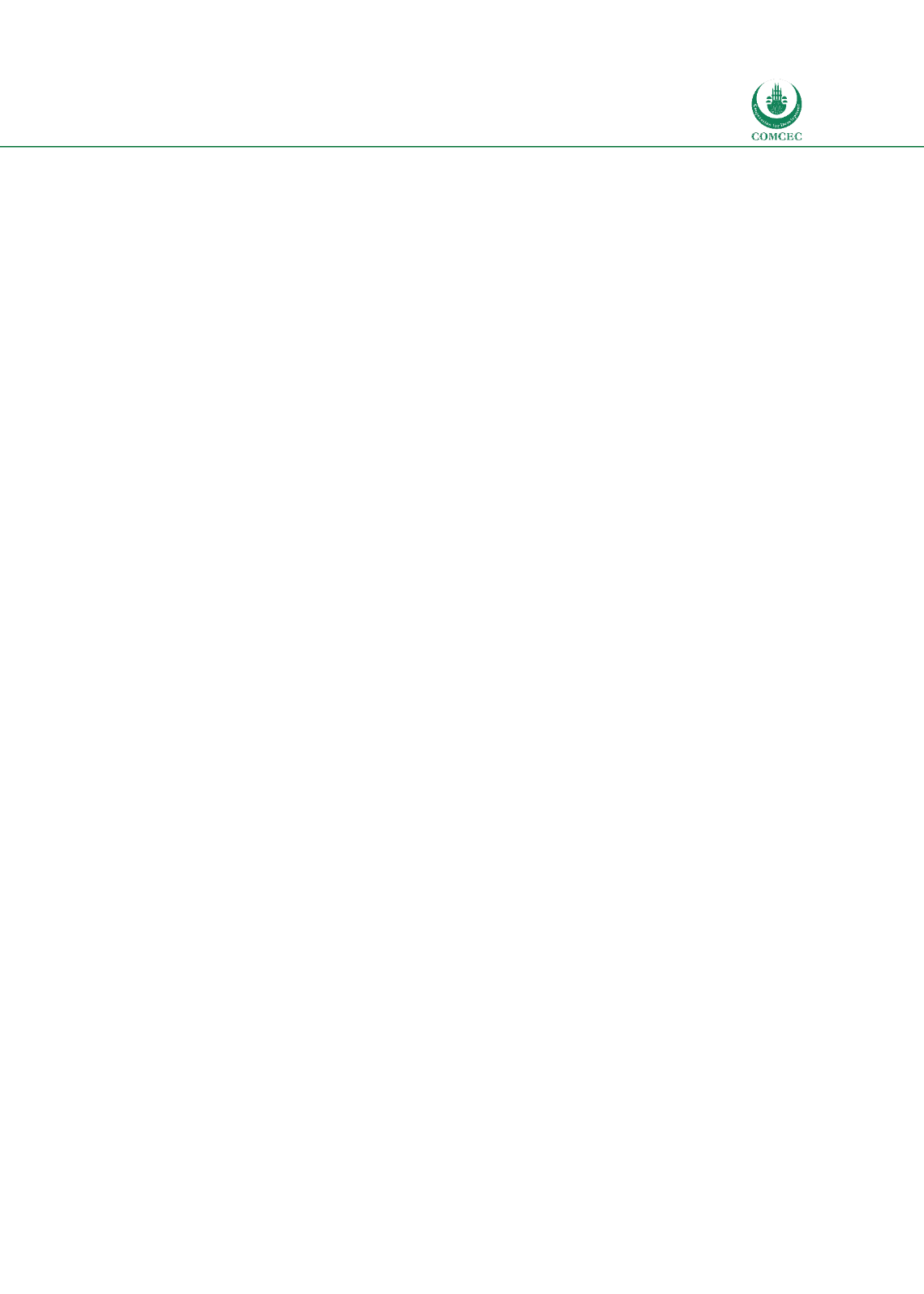

National and Global Islamic Financial Architecture:
Prolems and Possible Solutions for the OIC Member Countries
79
Similar to MES, IAEI has hundreds of executive members, particularly lecturers, researchers
and academics from all provinces in Indonesia and even from overseas such as Bahrain,
Malaysia and England. Its Board of advisors is chaired by the former President of Indonesia
and has a governing board headed by the Chairman of the National Ulama Council (MUI). It
also has 26 departments that include Islamic economic education, research and publication,
socialization, etc. The activities of the IAEI focus on human capital development and research
which includes publishing IAEI journals on Islamic economics and banking; hosting an Islamic
finance and economic research forum; holding competitions on Islamic economics and finance
research papers; developing Islamic economics and banking curriculum for senior high school
and universities; and standardizing Islamic finance knowledge and skills among lecturers,
Islamic bankers, researchers, etc. by offering an Islamic economic and finance standard
certificate.
Thirdly, the Islamic Economic Communication Center (PKES) was established in 2003 and is
headed by the Chairman of the Indonesian Deposit Insurance Corporation (LPS) and the
former deputy governor of Bank Indonesia (PKES, 2015). PKES is positioned to be the center
for any communication, coordination and collaboration among stakeholders in relation to
Islamic economic banking and finance. It integrates a website of Islamic economics, mailing
lists and various media (bulletin, news, etc.) as well as coordinates a nationwide program
called the Islamic Economic Movement (GRES).
Besides, three leading nonprofit organizations, undergraduate students formed a nationwide
organization called the Gathering of Islamic Economics Studies (FOSSEI) in 2001. It has 7000
undergraduate student members coming from 157 universities in the country. It not only has
regular discussions and national research forums on Islamic economics, banking and finance
but also has programs to educate undergraduate students with Islamic finance, namely Islamic
economic campaign and training for trainers.
4.3.8. Summary and Conclusions
Though starting relatively, late Indonesia appears to have developed the key infrastructure
institutions for the Islamic financial sector. The country has changed financial laws to
accommodate all Islamic financial sectors and the finance ministry has changed tax laws to
ensure tax neutrality. The latter eliminates the tax burden disparity and levels the playing field
with conventional finance. Furthermore, a specific arbitration center exists where disputes
related to Islamic finance can be adjudicated. The regulatory authorities have not only adopted
regulations related to Islamic financial sectors but have also come up with strategic documents
to further develop the industry. The Shariah governance regime for the Islamic finance
industry is robust with a national level independent Shariah authority that issues the Shariah
rulings and which the regulators provide a framework for Shariah governance at the level of
financial institutions. Indonesia has developed various liquidity management instruments and
the central bank has LOLR facilities for Islamic banks. The domestic accounting body has come
up with accounting guidelines for Islamic finance and the ratings agencies have the capability
to rate Islamic financial institutions and instruments. The consumer protection regime is also
sound with specific schemes for Islamic finance related to financial literacy and deposit
insurance. The country has many academic institutions at the public, private and nonprofit
levels that are engaged in research and education in Islamic finance.
















